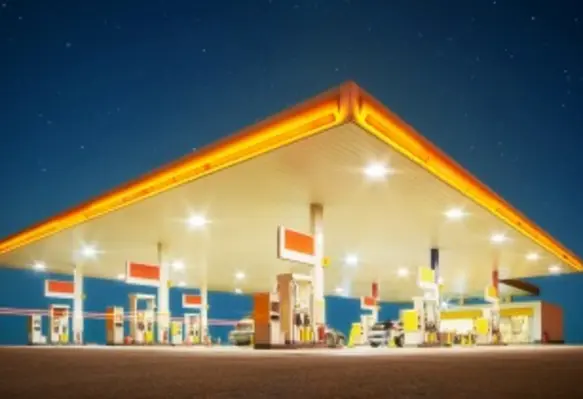With the rapid digital technology, many retailers are exploring new technologies and devices to upgrade their development of gas station systems to promote oil and nonoil product sales, improve gas station efficiency, increase single station revenue, and reduce operating cost
Complex services such as oil transportation, storage, equipment and facility management are constricted within a limited area. As a result, gas stations face the risk of fire and explosions with many security risks that are difficult to detect. For example, the concentration of oil and gas in the air cannot be directly and effectively observed, and static electricity is easily accumulated during the refuelling process, posing a serious safety risk.
Traditional gas stations rely on manual risk investigation, identification, and prevention leading to inefficiency and inaccuracy. For critical indicators such as station entry rate, refuelling rate, and repeat customer rate, dedicated personnel are appointed to manually count passing vehicles.
Huawei Smart Gas Station Solution
Huawei's smart gas station solution uses the latest ICTs to integrate and model isolated service subsystems, such as fuel dispensers, liquid level meters, payment platforms, workorders, large screens, and video monitoring, to form a comprehensive analysis and display platform, implement around-the-clock online monitoring of oil tank inventory, fuel dispenser status, oil and gas concentrations, and gas leakages.
For example, based on AI and data analysis capabilities, the solution implements intelligent monitoring and warning throughout the eight phases of vehicle introduction, security check, security protection check, preunloading confirmation, oil unloading, unloading monitoring, oil acceptance, and postunloading processing. Once a security risk occurs, the intelligent system reports the risk and alerts the manager on their mobile phone.
The AI identification accuracy of Huawei's smart gas station solution exceeds 98%, with risks fully identified and traceable operation records. Reliable data is used to support service management and decision making, helping gas stations go digital.
Refuelling speed, oil quality, payment experience, and the service of the gas station staff play a vital role in improving the refuelling experience. Huawei's smart gas station solution provides intelligent service functions to transform the customer’s journey through digital onsite services. For example, the solution proactively guides vehicles, intelligently identifies oil product types, automatically charges fees, and proactively presents invoices, allowing consumers to refuel without getting out of their vehicles. The average refueling time is shortened from six to two minutes, optimising the refuelling experience while boosting operation efficiency.
Huawei Fusion IT Infrastructure
Huawei has launched the first intelligently integrated and converged edge platform built based on the existing infrastructure and service applications of gas stations.
The platform is easy to operate and maintain. Using Huawei's star product FusionCube, Huawei integrates the IT systems at gas stations such as computing, storage, network, security and AI. This allows a wide range of intelligent services and helps gas stations develop intelligent sales, digital operations and integrated management.
Integrating existing devices
Gas stations also need innovative applications to operate and manage new services. Huawei can reuse existing gas station devices, applying an AI engine to develop and train Huawei and third-party algorithms by orchestrating resources on the cloud and at the edge. The algorithms can be remotely delivered to sites with one click. As such, service rollout takes half the time, while applications can be quickly developed and iterated. Time-sensitive services can be quickly processed directly at the gas stations. Only the processed core data is transmitted to the cloud as needed. This reduces the overall latency during data processing and requires less bandwidth for data transmission. With fewer transmission links, data is more secure.
As traditional gas stations embark on the road to a digital future, Huawei will continue to build a 'people-vehicle-life' ecosystem, to increase sales of refined oil products and deliver optimised services to customers.







